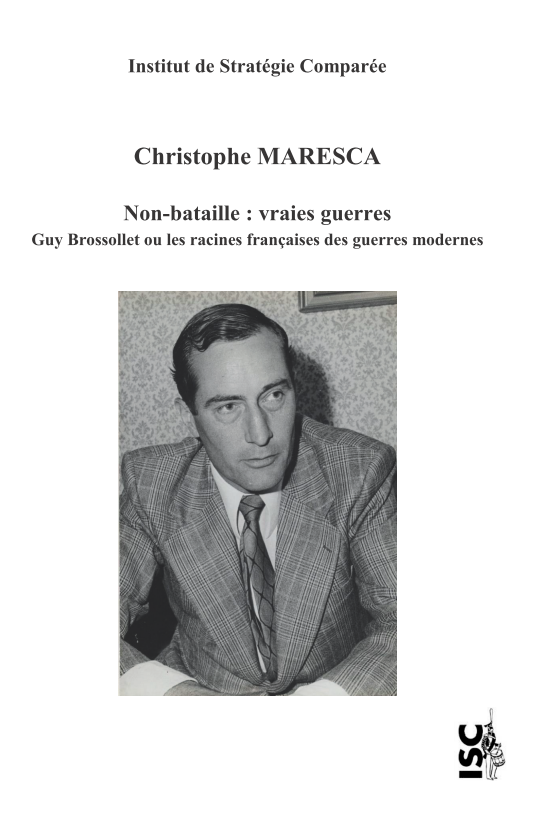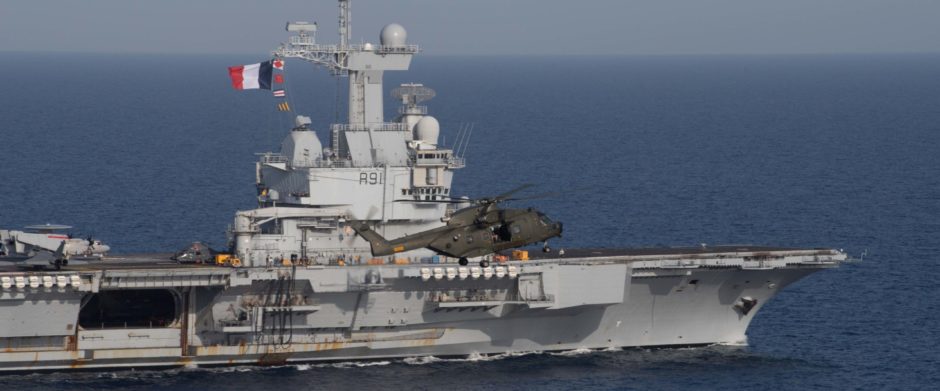- Albou Paul, Crocq Louis et al., Stress et prise de décision, Paris, Fondation pour les études de défense nationale, Dossier 31, 1990.
- Becker Cyrille, L’art de commander selon André Maurois, Nuvis, Paris, 2017.
- Boëldieu-Trevet Jeannine, Commander dans le monde grec au ve siècle avant notre ère, Besançon, Presses universitaires de Franche-Comté, 2007.
- Bourget J.M., Gouvernement et commandement. Les leçons de la guerre mondiale, Paris, Payot, 1930.
- Brett-Smith, Hitler’s Generals, Londres, Osprey, 1976.
- Cailleteau François, “Le commandement des armées françaises pendant la Grande Guerre”, Guerres mondiales et conflits contemporains, 155 et 156, juillet et octobre 1989.
- “Le commandement international unifié au xxe siècle”, Guerres mondiales et conflits contemporains, 167, octobre 1992.
- Callahan Raymond, Churchill and His Generals, Lawrence, Kansas University Press, 2007.
- Camon Hubert (général), Le Maréchal de Luxembourg 1628-1695, Paris, Berger-Levrault, 1936.
- Chandler David G., Marlborough as Military Commander, New York, Scribner, 1973.
- Chandler David G. (ed.), Napoleon’s Marshals, New York, Macmillan, 1986.
- “La direction de la guerre”, Revue internationale d’histoire militaire, 47, 1980 (numéro international sur la conduite de la seconde guerre mondiale).
- Cohen Eliot, Supreme Command: Soldiers, Statesmen and Leadership in Wartime, Free Press, New York, 2002.
- Davis Paul K., Masters of the Battlefield: Great Commanders from the Classical Age to the Napoleonic Era, Oxford University Press, Oxford, 2013.
- Desportes Vincent, Décider dans l’incertitude, Paris, Économica, Stratégies et doctrines, 2007.
- Desprels Ph.-E., Les Leçons de la guerre, Paris, Auguste Ghio Editeur, 1880 (sur les qualités nécessaires au général).
- Dixon Norman, De l’incompétence militaire, Paris, Stock, 1977 (livre percutant, mais pas nécessairement pertinent).
- Duffy Christopher, The Military Life of Frederick the Great, New York, Hippocrene, 1986.
- Dunningan James F., How to Make War. A Comprehensive Guide to Modern Warfare for the Post-Cold War Era, New York, William Morrow, 1993 (3e éd.).
- Dupuy Trevor N., A Genius for War. The German Army and General Staff 1807-1945, Fairfax, Hero Books, 1984.
- Elliott Christopher L., High Command. British Military Leadership in the Iraq and Afghanistan Wars, Londres, Hurst, 2017.
- Faculty Combat-Studies Institute, Studies in Battle Command, Fort Leavenworth, US Army Command & General Staff College, 1995.
- Feldmann Daniel, Ils ont conduit les Alliés à la victoire. Patton, de Lattre et leurs pairs, Perrin, Paris, 2019.
- Fuller J.F.C., Its Diseases and their Cure. A Study of the Personal Factor in Command, Harrisburg, Military Service Publishing, 1936 (réimpression 1991).
- Gautschi Willi, Le général Guisan. Le commandement de l’armée suisse pendant la seconde guerre mondiale, Lausanne, Payot, 1991.
- Gerber Johannes, Landkriegführung. Operation. Taktik. Logistik. Mittel. Ein Handbuch, Osnabrück, Biblio-Verlag, 1992.
- Grauer Ryan, Commanding Military Power. Organizing for Victory and Defeat on the Battlefield, Cambridge University Press, Cambridge, 2016.
- Greenhalgh Elizabeth, Foch in Command. The Forging of a First World War General, Cambridge University Press, Cambridge, 2014.
- Haberey Gilles et Hugues Perot, Les 7 péchés capitaux du chef militaire. Les plus grandes erreurs tactiques de l’Antiquité à nos jours, Éditions Pierre de Taillac, Paris, 2017.
- Haithornwhaite, Invincible Generals, Bloomington, Indiana University Press, 1992.
- Hayes Grace Person, The History of the Joint Chiefs of Staff in World War II. The War Against Japan, Annapolis, Naval Institute Press, 1982.
- Herspring Dale R., The Kremlin and the High Command. Presidential Impact on the Russian Military from Gorbachev to Putin, Lawrence, Kansas University Press, 2006.
- Horsfield John, The Art of Leadership in War. The Royal Navy from the Age of Nelson to the End of World War II, Westport-Londres, Greenwood Press, Contributions in Military History 21, 1980.
- Illiez Pierre, L’Autorité discrète de Robert Lee, ou les victoires manquées de la guerre de Sécession, Paris, Perrin, 1980 (interprétation psychanalytique).
- Irving David, La Guerre entre les généraux, Paris, Belfond, 1981 (sur le commandement anglo-américain 1942-1945 ; pittoresque mais à manier avec précaution).
- Jablonsky David, Churchill and Hitler : Essays on the Political-Military Direction of Total War, Londres, Frank Cass, 1994.
- Jones Stephanie et Gosling Jonathan (eds.), Napoleonic Leardership. A Study in Power, Sage, Londres, 2015.
- Jordan Robert S., Generals in International Politics. NATO’s Supreme Allied Commander Europe, Lexington, The University Press of Kentucky, 1987.
- Keegan John, L’Art du commandement, Paris, Perrin, 1991.
- King Anthony, Command: The Twenty-First-Century General, Cambridge, Cambridge University Press, 2019.
- Lérignan Lort de, Napoléon et les grands généraux de la Révolution et de l’Empire, Paris, Fontemoing, 1914.
- Love Jr Robert William (ed.), The Chiefs of Naval Operations, Annapolis, Naval Institute Press, 1980.
- Macksey Kenneth, Panzer General, Londres-Novato, Greenhill Books – Presidio Press, 1992.
- Macksey Kenneth, Military Errors of World War Two, Londres, Arms & Armour Press, 1993.
- Marshall-Cornwall James H., Marshall Masséna, Londres-New York, Oxford University Press, 1965.
- Matloff Maurice, Strategic Planning for Coalition Warfare 1943-1944, Washington, GPO, U.S. Army in World War II, 1959.
- McChrystal Stanley A, David Silverman, Chris Fussell et Tantum Collins. Team of Teams: New Rules of Engagement for a Complex World, New York, Penguin, 2015.
- Megargee Geoffrey P., Inside Hitler’s High Command, Lawrence, Kansas University Press, 2000.
- Mitcham Jr Samuel W., Hitler’s Field Marshals and their Battles, Lanham, Scarborough, 1988.
- Morelock J.D., Generals of the Ardennes. American Leadership in the Battle of the Bulge, Washington, National Defense University Press, 1994.
- Murray Williamson, Knox MacGregor & Bernstein Alvin (eds), The Making of Strategy. Rulers, States and War, Cambridge, Cambridge University Press, 1994 (fondamental).
- Nye Roger H., The Patton Mind. The Professional Development of an Extraordinary Leader, Garden City Park, Avery, 1993.
- Olsen John Andreas (ed.), Air Commanders, Potomac Books, Washington, 2012.
- Payne Kenneth, Strategy, Evolution and War: From Apes to Artificial Intelligence, Georgetown University Press, Washington, 2018.
- Pedersen P.A., Monash as Military Commander, Melbourne, Melbourne University Press, 1985 (le général australien Monash mit en œuvre de nouvelles tactiques qui aboutirent à un brillant succès à la bataille d’Hamel, en juillet 1918).
- Pearlman Michael D., Warmaking and American Democracy. The Struggle over Military Strategy, 1700 to the Present, Lawrence, Kansas University Press, 1999.
- Pedroncini Guy, “Trois maréchaux, trois stratégies”, Guerres mondiales et conflits contemporains, 145, janvier 1997.
- Perré Jean, Intelligence et valeurs morales dans la guerre, Paris, Lavauzelle, 1965.
- Philbin Tobias R., Admiral von Hipper ; The Inconvenient Hero, Amsterdam, B.R. Grüner, 1982.
- Prior Robin et Wilson Trevor, Command on the Western Front, Oxford, Blackwell, 1992.
- Reichel Daniel, Davout et l’art de la guerre, Neuchâtel, Delachaux et Nestlé, 1975 (s’arrête en 1806 ; l’auteur n’a pas eu le temps de rédiger le deuxième tome).
- Regan Geoffrey, Someone had Blundered¼ Historical Survey of Military Incompetence, Londres, Batsford, 1987.
- Rendulic Lothar (colonel-général), Grundlagen militärischer Führung, Herford-Bonn, Maximilian-Verlag, 1967 (l’auteur commanda trois groupes d’armées de la Wehrmacht durant la seconde guerre mondiale).
- Revol J. (capitaine), Essai de psychologie militaire, Paris, Lavauzelle, s.d. (1910).
- Rocolle Pierre, L’Hécatombe des généraux, Paris, Lavauzelle, 1980 (sur le commandement français en 1914).
- Schuman Frederik L., War and Diplomacy in the French Republic : An Inquiry into Political Motivations and the Control of Foreign Policy, New York, Howard Fertig, 1969 (original 1931).
- Shamir Eitan, Transforming Command: The Pursuit of Mission Command in the US, British and Israeli Armies, Stanford University Press, Stanford, 2011.
- Sheffield, G., Till, G. (Eds.), The Challenges of High Command. The British Experience, Palgrave MacMillan. Londres, 2003.
- Taaffe Stephen R., Marshall and His Generals. U.S. Army Commanders in World War II, Lawrence, Kansas University Press, 2011.
- Trask David F., Captains and Cabinets. Anglo-American Naval Relations 1917-1918, Columbia, University of Missouri Press, 1972.
- Thoumas ch., Les Capitulations. Étude d’histoire militaire sur la responsabilité du commandement, Paris, Berger-Levrault, 1886.
- Turenne et l’art de la guerre, Actes du colloque international, Paris, Les Belles Lettres, 1976.
- Van Creveld Martin, Command in War, Cambridge, Harvard University Press, 1985.
- Vandergriff Donald E., Adopting Mission Command: Developing Leaders for a Superior Command Culture, Naval Institute Press, Annapolis, 2019.
- Woodward David, Lloyd George and the Generals, Newark, University of Newark Press, 1983.
-
Défense et illustration de l'enseignement de la stratégie
-
* * *
-
Les chercheurs de l'ISC
-
* * *
-
Nos dernières publications
-
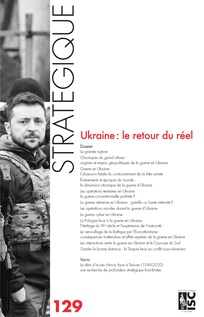
-
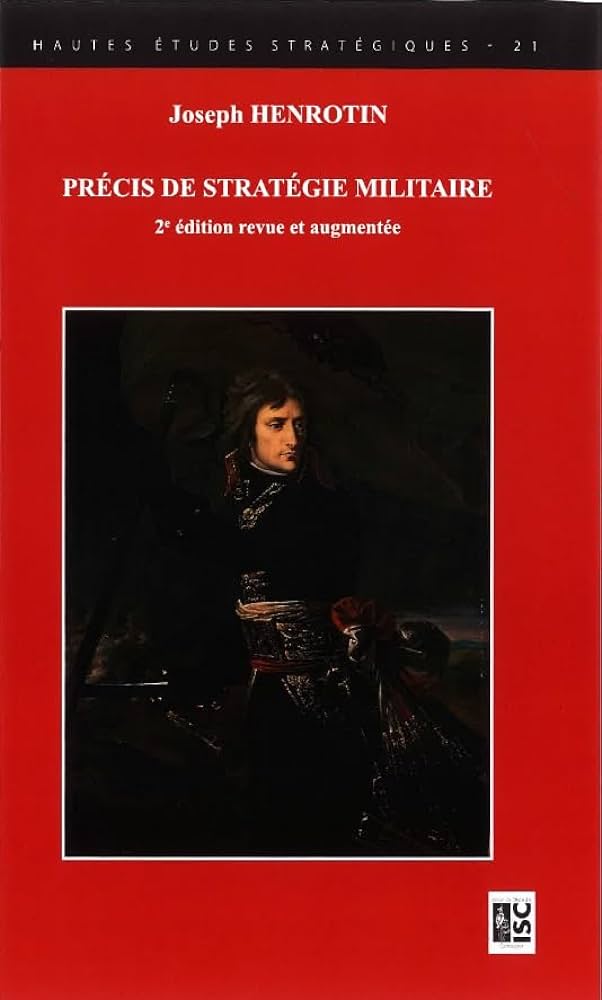
-
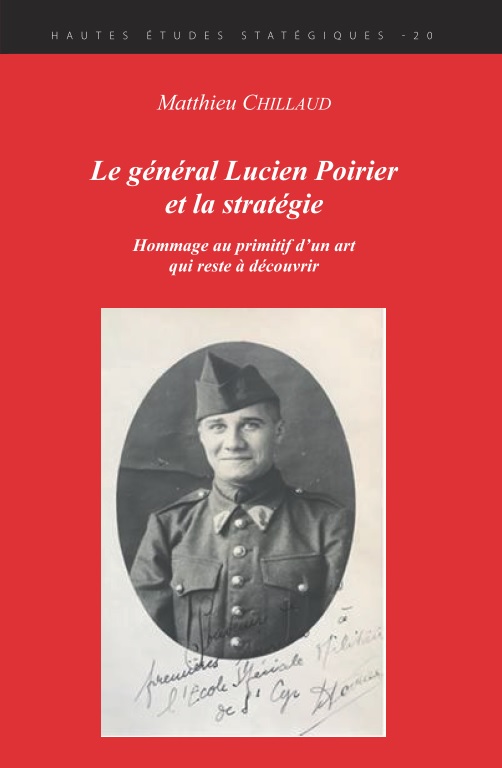
-
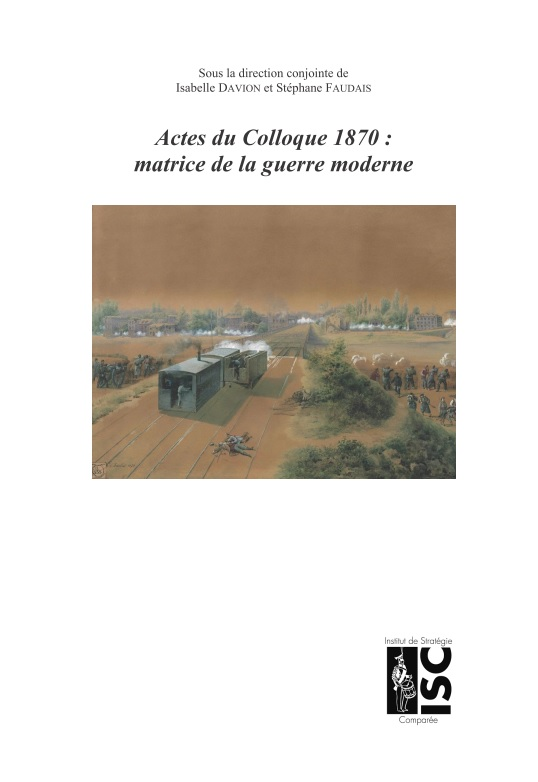
-
